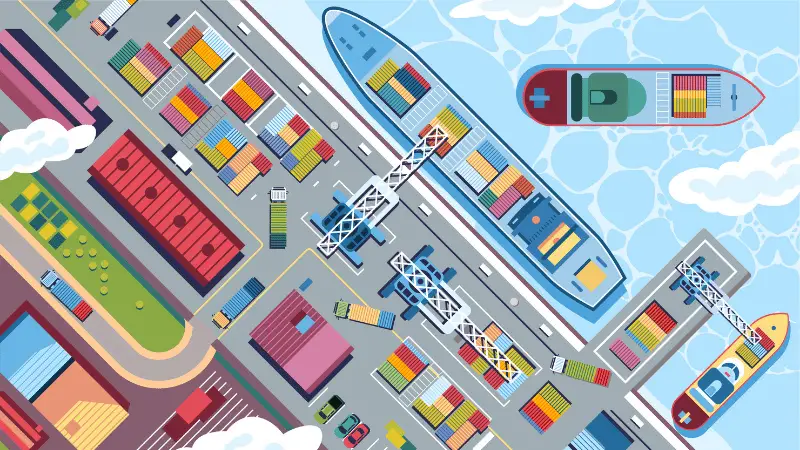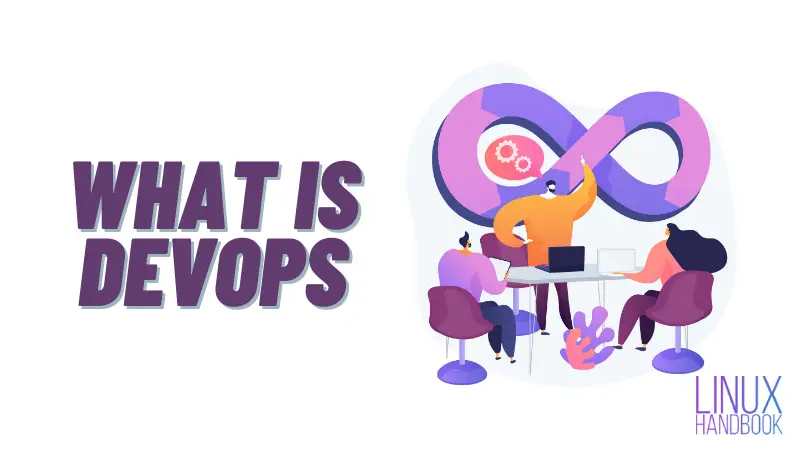Difference between Containerization and Orchestration: A Layman's Outlook
Learn the basic difference between containerization and orchestration through a simple analogy.

Containerization and Orchestration.
You might have come across these two terms in the DevOps world, especially if you are a sysadmin.
There are already many articles that have tried to explain the difference between containerization and orchestration, but most of them focus their comparison on Docker and Kubernetes.
Before differentiating between software, it is essential to first understand the difference between their purpose, as to why they were developed in the first place.
So in this quick read, I have tried to explore what the terms containerization and orchestration actually mean as core concepts for beginners and newbies.
How can you differentiate between containerization and orchestration? Let us use an analogy.
A Layman's Outlook on Containerization and Orchestration
The word container represents a large, isolated cuboid in an individual environment. These containers store cargo and are loaded on a ship.

You can imagine it as the containers docked on a ship in a dockyard.
"Docked", "Dockyard" and "Docker"! Do these terms ring a bell?
The word orchestra represents a group of musicians performing a musical note in perfect synchronization, aided by a conductor or otherwise called a concertmaster.

This perfectly synchronized musical harmony is what you call orchestration.
Now, when you look at it with a DevOps perspective and try to understand how this idea was adopted for the management of applications running within computer systems, you must replace the musicians with container "ships".
The applications that I've mentioned here are very much comparable to the cargo held inside a ship's container.
So, you can visualize the Docker software as a ship, docked with different containers running different applications. How this ship is steered depends on the "quartermaster". Docker containerizes an application to run as a single, isolated unit.
Just how a quartermaster is responsible for keeping a close eye on the navigation, steering and signals on a ship, Docker is responsible for efficiently managing the containers running on a computer system.
Note that these containers run individual applications inside their own isolated, OS-based environments as virtual machines or physical servers.
Multiple containers can run on a single virtual machine or server. You can think of these virtual machines or servers represented as ships.
How can you now visualize Kubernetes on the same lines? Think of multiple ships now.

Each of these ships carry multiple containers. Kubernetes orchestrates multiple virtual machines or nodes to run in complete synchronization with each other.
Though the term Kubernetes means helmsman, or the pilot of a ship, our analogy would be better understood if we relate that term to a "harbourmaster".
Just how a harbourmaster manages to "orchestrate" a multitude of ships arriving or leaving a ship port, Kubernetes does the same thing but with multiple virtual machines that run various containers. If there is just one ship (system), you could still use the same analogy for multiple containers.
You can still continue to use the word "performance". But instead of musical performance in an orchestra or fleet performance at a harbour, you now have system performance on a server.
I hope you can now clearly visualize the fundamental difference between containerization and orchestration on physical servers.
Based on this understanding, let us now conclude with some simple definitions for both.
Containerization
Containerization is the isolation of applications for deployment inside individual OS based environments inside virtual machines or physical servers, also referred to as nodes in general. An example of such a containerization tool is Docker.
Orchestration
Orchestration is the method of synchronizing multiple containers running on multiple nodes and also the nodes themselves. These nodes can be virtual machines or physical servers. An example of such an orchestration tool is Kubernetes.
Do note that Kubernetes is capable of performing containerization as well, just as how Docker Swarm can perform orchestration.

Hope you find this article useful, and now you can distinguish between the two concepts through the described analogy. If you would like to share some feedback, suggestion or comment, please use the section below.
DevOps Geek at Linux Handbook | Doctoral Researcher on GPU-based Bioinformatics & author of 'Hands-On GPU Computing with Python' | Strong Believer in the role of Linux & Decentralization in Science
